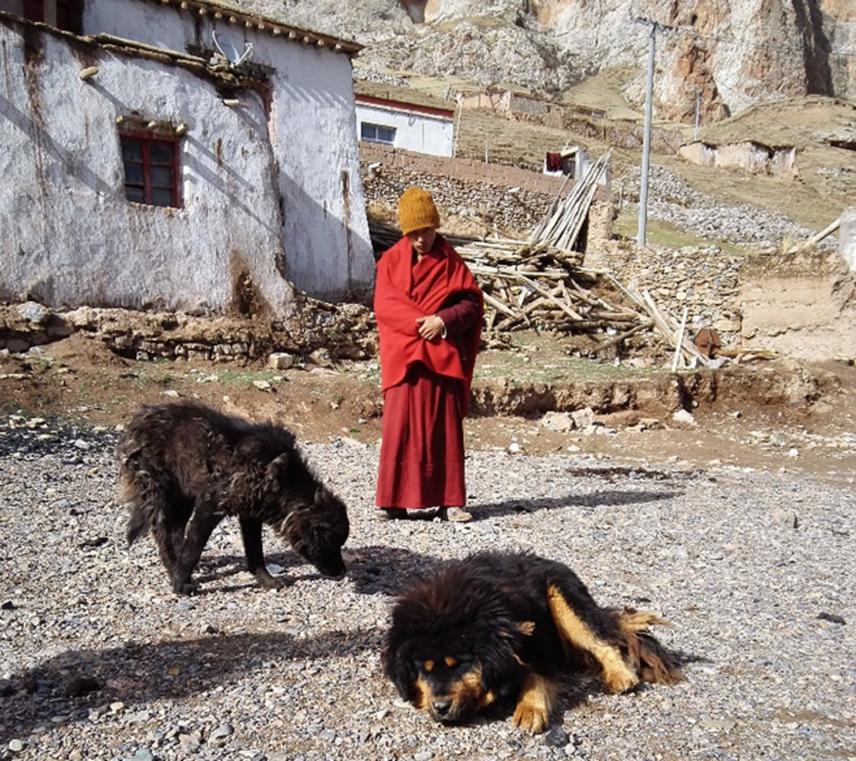Mingyu Liu
Other projects
5 Sep 2017
Ecological Research of Free-Ranging Dogs and Competition with Snow Leopards in Sanjiangyuan
Evaluate the exploitative competition (density, activity pattern and dietary overlap) between free-ranging dogs and snow leopards, and explore methods to reduce negative impacts of free-ranging dogs on native carnivores.

With the expansion of human activities, free-ranging dogs are more likely to encounter native carnivores and interact as predators, prey or competitors. Areas such as the Tibetan Plateau, may be particularly vulnerable to such a phenomenon, is a unique and fragile ecosystem which has many distinct endemic species without detailed study, and an area in which many dogs have already been released. Tibetan Buddhist Monasteries have a positive role for snow leopard conservation).
However, as the religion aims to be kind to all creatures, local monks also provide refuges for abandoned and feral dogs. As a result, there are many free-ranging dogs around monasteries share the same habitat with snow leopard which is a flagship species that helps maintain the health of whole local ecosystem. Due to high reproductive ability and adaptability, free-ranging dogs, which already be seen chasing local wildlife, and has potentially negative consequences for native species.
This proposed study will be conducted in Zaduo County. This study aims to assess exploitative competition (density, activity pattern and dietary overlap) between free-ranging dogs and snow leopards, find ways to reduce competition (i.e. parasite control, spaying or neutering, vaccinations, changes in feral dog feeding, etc.), and contribute to biodiversity conservation in the Sanjiangyuan Region.
Semi-structured interview will be carried out to gather basic information and local people’s altitude to free-ranging dogs and wildlife conservation. Paint-recapture and distance sampling will be used to acquire population density. Camera traps and wearable cameras will be used to monitor activity patterns. Scat samples will be collected and analysed with microscope to study dietary.
We hypothesize that with increased density, free-ranging dogs might have more competition with snow leopards. We will write scientific reports, offer suggestions to local government on dog-control program, publish brochures for local people to raise public awareness in carnivore conservation, in order to offer a better environment for snow leopard.